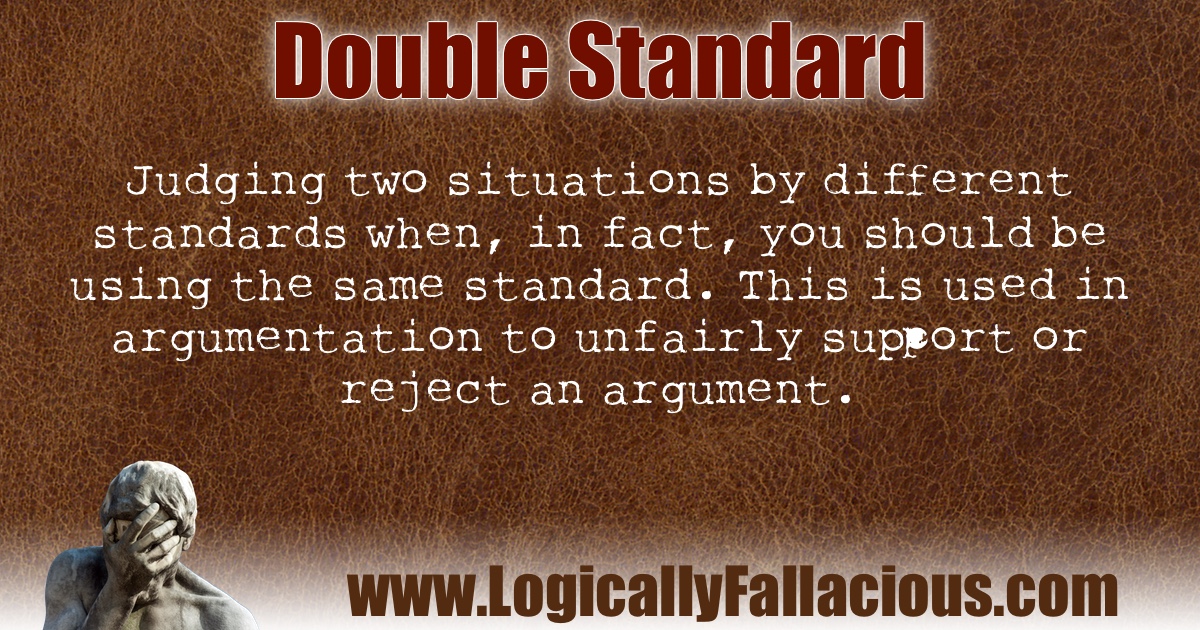Description: Judging two situations by different standards when, in fact, you should be using the same standard. This is used in argumentation to unfairly support or reject an argument.
Logical Form:
Person 1 makes claim X and gives reason Y.
Person 2 makes claim Z and gives reason Y.
Person 1 unfairly rejects reason Y, but only for claim Z and not claim X.
Example #1:
Husband: I forbid you to go to that male strip club! That is a completely inappropriate thing for a wife to do!
Wife: What about when you went to the female strip club last year?
Husband: That was just for fun, and besides, that's different.
Explanation: The husband is holding his wife to a different standard without articulating the standard. Most people would also agree that the standard is unfair.
Example #2:
Catholic: I know St. Peter answers prayers because when I pray to him, my prayers are sometimes answered. When they are not, it is because St. Peter knows what is best for me.
Protestant: Do you realize how foolish that sounds? You can say the same thing about praying to a mailbox.
Catholic: How do you know God answers prayers?
Protestant: Well... I... that's different.
Explanation: It often occurs within religion where the standards applied to one religion or denomination to claim "truth" don't apply to arguments from other religions or denominations. In this example, the Protestant is demanding stronger "evidence" for the Catholic's claim than she would demand for herself explaining how God answers prayers.
Exception: The fallacy is in the fact that the standards should be the same, but sometimes there are legitimate different standards. For example, a president's remarks are held to a different standard than a reality television star’s remarks.
Fun Fact: The default position is equal standards. One should not have to argue for this; the one claiming that standards are not equal has the burden of proof.

References:
This a logical fallacy frequently used on the Internet. No academic sources could be found.
Questions about this fallacy? Ask our community!